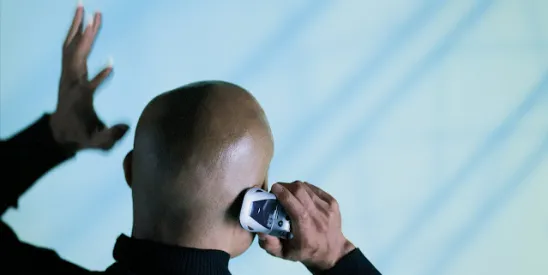Under the Telephone Consumer Protection Act (TCPA), it is unlawful to “make any call” (other than an emergency call or one made with prior express consent) to a cellphone using an automatic telephone dialing system or an artificial or prerecorded voice. Calls include text messages. The term “make” is not defined in the statute. So the regulatory parameters of that term have, in the first instance, been left to the Federal Communications Commission (FCC), as the agency responsible for implementing the TCPA.
Recently, on October 1, the United States District Court for the Eastern District of Washington, in Roberta Frank v. Cannabis & Glass, LLC et al., 2019 U.S. Dist. LEXIS 17081, Case No. 2:19-cv-00250-SAB, decided October 1, 2019, addressed key factors involved in answering the “who-made-the-call” question.
The plaintiff visited a retail cannabis business and signed up for its loyalty program by providing her cellphone number. She was not told that, by giving her number, she would start receiving text messages on behalf of Cannabis & Glass and two other retail cannabis outfits, NXNW Retail, LLC and Tate Kapple, that notified her of sales and discounts. Subsequently, after visiting a second retail location whose loyalty program was linked to the one for which she had signed up, she began to receive text messages from the retailers. The texts were sent using the SMS short codes of Springbig, Inc., a provider of services for loyalty programs. She then brought a TCPA class action against the cannabis retailers and Springbig. The latter moved to dismiss the suit for failure to state a claim.
In analyzing whether Springbig “made” the calls for TCPA purposes, the Court first ruled that absent a statutory definition, it should defer to the FCC’s interpretation of the term, so long as it “is reasonable.”
Next, the Court noted that “according to the FCC, generally, common carriers providing telecommunications services are not liable under the TCPA…absent ‘a high degree of involvement or actual notice of an illegal use and failure to take steps to prevent such transmission.’” Citing the FCC’s 2015 Omnibus Order, it added that the carrier must be “so involved in making the call as to be deemed to have initiated it.” Further, in determining whether “an app or user is the maker of the call,” the FCC looks to the “totality of the facts and circumstances surrounding the placing of a particular call….”
In an instructive laundry-list-like categorization, the Court then set forth the following sample facts and circumstances relevant to the determination:
-
the extent to which the provider/host controls the messaging;
-
the extent to which the provider/host controls the timing or sending of the message;
-
the extent to which the provider/host controls the recipient list;
-
the extent to which the provider/host “willfully enables fraudulent spoofing of telephone numbers”;
-
the extent to which the provider/host assists customers in blocking Caller ID;
-
whether the provider/host knowingly allows its customers to use the platform in a way that violates the TCPA;
-
whether the service or platform is purely reactive in nature, sending messages as proscribed and arranged by the customer.
Measured against these benchmarks, the plaintiff’s amended complaint failed to “make” the case against Springbig. For example, there were no allegations that Springbig “exercised any discernible involvement in deciding whether, when, or to whom the text message is sent, or what the text message said.” Even taking as true plaintiff’s allegations that “Springbig had some role, albeit a minor one, in the causal chain that resulted in sending of the text,” according to the FCC guidance, it was not enough to survive the motion to dismiss. Granted with leave to try yet another amended complaint.
An instructive roadmap and framework for TCPAWorld followers on the question of “who made the call under the TCPA?”




 />i
/>i

